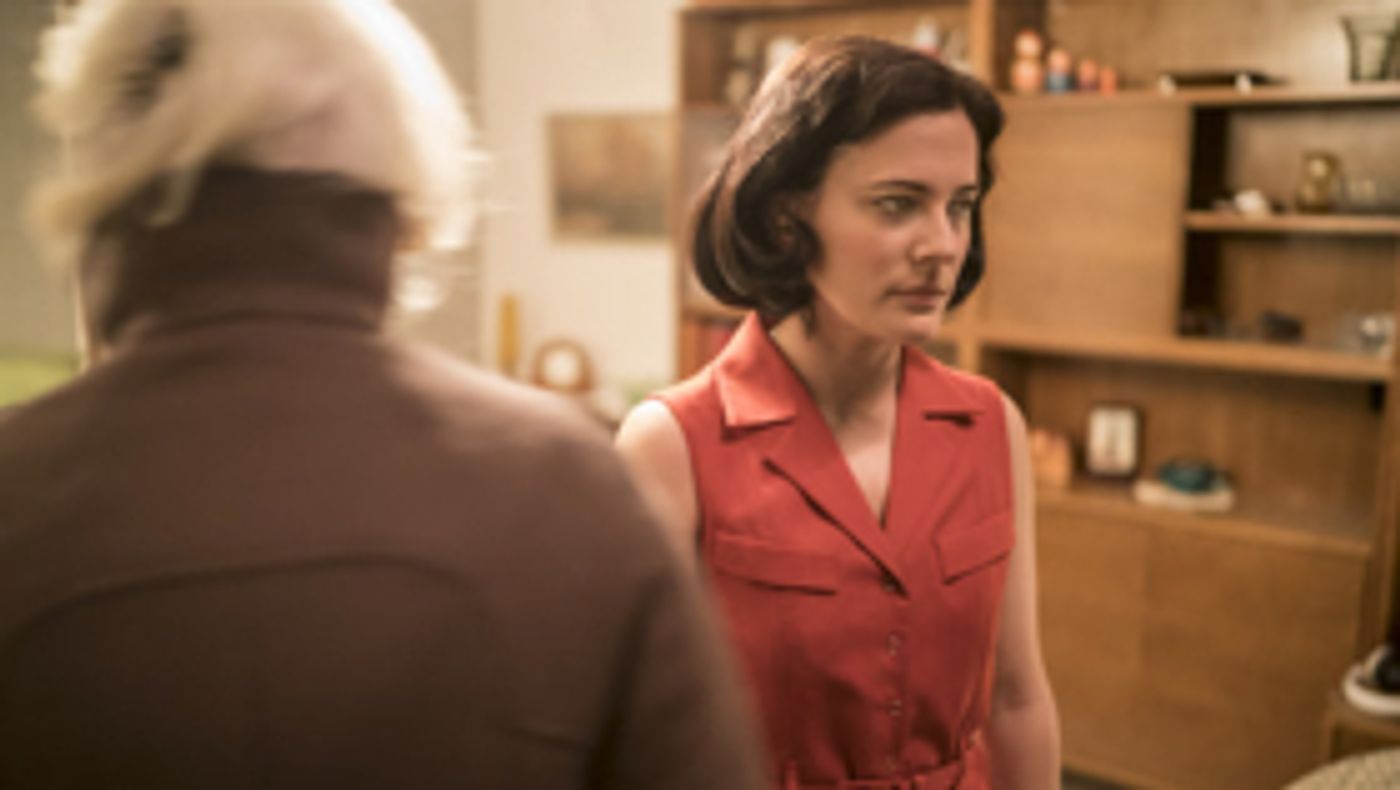Review: ANNA, National Theatre

![]() The audience plays surveillance state in this pioneering collaboration between playwright Ella Hickson and sound designers Ben and Max Ringham. We experience the action through individual sets of headphones, corresponding to a hidden mic on our protagonist Anna - listening in to her every exchange and private moment.
The audience plays surveillance state in this pioneering collaboration between playwright Ella Hickson and sound designers Ben and Max Ringham. We experience the action through individual sets of headphones, corresponding to a hidden mic on our protagonist Anna - listening in to her every exchange and private moment.
It's an inventive way to plunge us into the Cold War paranoia of 1968 East Berlin, and provide a new perspective on this Le Carré-esque thriller. Immediately, we are forced into a strange kind of intimacy with Anna. We hear her little half-sigh as she studies her reflection in the mirror while getting ready, and follow her personal unravelling during a very public event.
That event is a party celebrating the promotion of her husband Hans, attended by his colleagues and boss, plus a less welcome guest: their neighbour Elena, whose husband used to work with them until he was arrested and taken away.
Hans and Anna are outwardly the picture-perfect socialist couple, enjoying the smart apartment gifted to them by new boss - and Party member - Christian; Anna is a teacher, instructing her students in the dream world resulting from Communist economics. But Anna believes Christian to be someone from her past, connected to a defining trauma, and she is unable to maintain the façade.
The controlled soundscape leads to some striking juxtapositions of terror with the mundane, like giving us a view of the partygoers drinking and dancing while we hear (but don't see) Anna violently throwing up, trying to light a cigarette with trembling fingers, or relating her experiences in a whispered exchange with a sceptical Hans. Natalie Abrahami's production is beautifully choreographed, with clear delineations between hidden and open spaces, where different rules apply.
It's a fascinating way of exploring the play's themes. In this controlled society, with the Party listening out for signs of dissent, there is much that cannot be voiced, or must be kept private. There's also a gendered element, as we see men discussing Anna's mental state - conversations neither she or we are privy to.
Sometimes, the device is used for pure horror. A blackout leaves us with nothing but aural clues, and the patient way that the production has set up the characters and the space pays off. We can piece together enough to feel a real sense of jeopardy, but we're quite literally in the dark when it comes to key details - frenzied imagination filling in the gaps.
However, a flurry of twists, though true to genre, places the emphasis slightly too much on plotting. It would be interesting to spend more time letting the various revelations land, and digging into ideas like whether loyalty to the state is incompatible with individual love, whether capitalism erodes community, and how a longing for the West might manifest.
Various subplots could also use more development, including Michael Gould's sympathetic Dieter making the brave choice not to play the Party game, at professional cost, and former athlete Karl hinting at the nefarious doings of a Party-approved doctor.
But there are strong turns from Diana Quick as Elena, now a pariah among friends; Max Bennett's physically imposing, potentially malevolent Christian; and Paul Bazely as a slippery Hans - who could be read as a concerned husband, an ardent careerist with one eye on how they look to the Party, or both.
Phoebe Fox anchors the 70-minute piece superbly. There's an ambiguity in her feelings for Hans; though she's seemingly affectionate, and we have sweet moments like him humming in her ear as they dance together, she's selective with the truth. The more we see how Anna puts on a show for her guests, the more we question her apparently happy marriage.
Fox also plays Anna's heightened (and alcohol-fuelled) emotions so that we can believe her in the moment, while wondering whether there's an element of delusion or dishonesty. It's a skilful tightrope walk of a performance.
Vicki Mortimer's period-pristine apartment is in a glass box, adding to the sense of a show home on display, in which Anna is trapped - and of us/the state spying on these people like lab rats.
The headphones obviously change the experience of being in a theatre audience. The biggest loss is moments of humour (like secretary Sophie's proud "I brought a cheese hedgehog!"); it feels odd to respond on your own, and other people's laughter is muffled. But this a well-earned showcase for sound design - via the best practitioners in the business - and its increasingly vital contribution to theatre.
The aural choices are intensely absorbing, connecting you totally to the action and lending a visceral voyeurism to the experience - an exciting example of theatrical innovation illuminating its subject in a bold new way. Ingenious and hypnotic.
ANNA at the National Theatre until 15 June
Photo credit: Johan Persson
Reader Reviews
Videos

